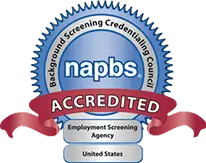 Private investigators specialize in several fields. You may need to hire a PI to ensure child custody, find a missing person, catch a cheating partner, or even just run some employment background checks. But not all PIs are worth your consideration. You may need to interview several investigators before finding the right fit. But what are some questions you should ask a private investigator?
Private investigators specialize in several fields. You may need to hire a PI to ensure child custody, find a missing person, catch a cheating partner, or even just run some employment background checks. But not all PIs are worth your consideration. You may need to interview several investigators before finding the right fit. But what are some questions you should ask a private investigator?
Are You Licensed and Insured?
Forty-five states require private investigators to be licensed before practicing. Even those that don’t require a license demand specific testing. Check the license requirements in your state prior to interviewing a potential investigator and be prepared to ask to see their license. You can also ask about their insurance coverage. This is especially important when hiring a PI because accidents and physical property damage can occur while on a case. Without insurance, those damages could be the client’s responsibility. A reputable private investigator will readily show you their license and provide proof of insurance that will cover common job-related issues.
What Is Your Expertise and How Long Have You Worked as a PI?
Most PIs have specific or primary expertise, whether that’s medical claims, background checks, cheating spouse surveillance, custody cases, or even finding missing persons. Make sure the investigator you’re interviewing has experience and expertise in the area you need. You’ll also want to ask how long they’ve been working in the industry and for the company itself. A newer PI can still do the job. But depending on the case or reason for hiring the PI, it may be more beneficial to choose someone who’s more experienced in the field.
Do You Have Legal Limitations, and Will You Work With My Lawyer?
Legitimate private investigators may never break the law or claim they hold any authority, such as police officers or lawyers. PIs are usually well-trained and licensed to perform specific legal and investigative duties. They also have access to special professional and industry-based databases not available to the public. Experienced private investigators can often cut red tape and avoid administrative sludge that can slow or bottleneck police stations and other legal offices. But they still have to follow the law. Professional private investigators are usually willing to work with your attorney or recommend one if necessary.
Do You Have References Similar to My Case Needs?
An established PI won’t be able to disclose confidential details of previous or current cases. But they should still be able to give you enough details so you can do your own side research, contact specific references, and ask about prior experience with clients who have had similar cases to yours. And if the PI cannot handle your case, they may offer professional suggestions for in-house or other local private investigators with more experience in that department.
What Hours Do You Work, and Can You Guarantee the Results I want?
You’ll want to avoid any private investigator who only works a set schedule or strictly follows the business hour platform. The right PI will adjust their work schedule to meet client needs, even if that means working evenings and weekends. Also, be sure to ask the investigator if they guarantee results. This is actually a trick question since a private investigator’s goal is to discover truth and facts for their clients. Those won’t always be the answers you want. But when you’re ready to employ the services of a PI and get the answers you need, we’re just a call away.










